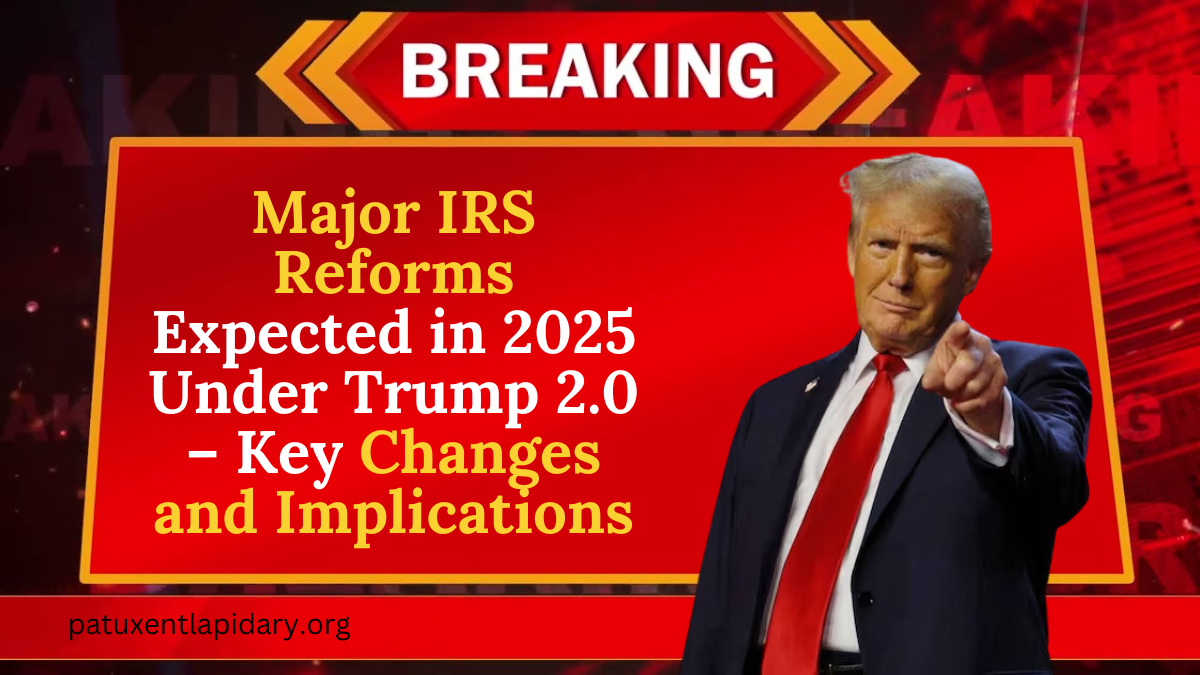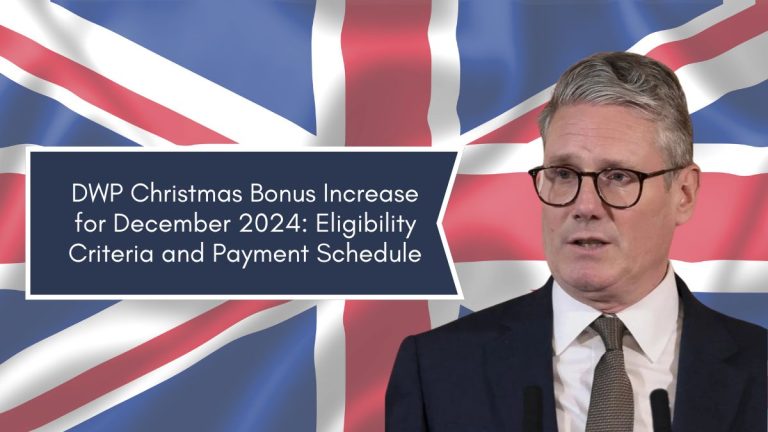In 2025, the Internal Revenue Service (IRS) may see significant reforms, potentially reshaping the tax landscape for both businesses and individual taxpayers. With the possibility of a second term under the Trump administration, these reforms could simplify the tax code, lower corporate tax rates, and introduce changes to wealth and estate taxes.
Understanding these anticipated changes will help you stay prepared and navigate the evolving tax system. This article highlights the key reforms and offers practical advice for taxpayers and businesses alike.
Key Areas of IRS Reform in 2025
| Reform Area | Potential Impact | Anticipated Changes |
|---|---|---|
| IRS Modernization | Streamlined tax filing and enhanced services | Increased automation, expanded online services |
| Tax Code Simplification | Easier filing for individuals and businesses | Fewer tax brackets, simplified deductions |
| Corporate Tax Changes | Lower tax rates for businesses and simpler compliance | Reduced corporate taxes, extended tax cuts |
| Wealth and Estate Taxes | Potential tax cuts for high-income earners and estates | Adjustments to estate tax, capital gains reforms |
IRS Modernization: Improving Efficiency
One of the major aspects of proposed IRS reforms is the modernization of the IRS. Currently, the IRS is often criticized for being slow, bureaucratic, and difficult to navigate. The Trump administration is likely to focus on improving these inefficiencies by incorporating more technology and automation.
What Does IRS Modernization Involve?
- Increased Automation: The IRS plans to implement more automated systems, allowing taxpayers to file and pay taxes more easily. This could lead to faster processing of tax returns and refunds, reducing the need for paper-based forms and manual intervention.
- Expanded Online Services: As part of modernization, the IRS may offer expanded online portals where individuals can submit forms, track refunds, and resolve issues directly from their computer or mobile device.
- Faster Response Times: Automation will also aim to improve customer service by reducing long wait times for tax inquiries and offering quicker responses.
Preparing for IRS Modernization
- Go Paperless: Transition to e-filing to ensure quicker processing of your returns. This will also be more secure and faster than paper filings.
- Stay Informed: Regularly check the IRS website for updates on new systems and services that may be introduced in the coming years.
Tax Code Simplification: What to Expect
A major goal of the 2025 IRS reforms is to simplify the U.S. tax code, which is currently filled with complex rules, deductions, and brackets. The simplification would help both individuals and businesses manage their taxes more effectively.
Key Changes Likely to Be Implemented
- Reduction of Tax Brackets: The number of tax brackets may be reduced, making it easier for taxpayers to understand their obligations and ensuring more straightforward filing.
- Streamlined Deductions: Rather than offering a long list of deductions, the IRS may introduce a few simple and easily accessible deductions. Additionally, the standard deduction could be increased to simplify filing for many taxpayers.
- Simplified Business Tax Filing: Small business owners may benefit from clearer and less cumbersome filing processes, with reduced paperwork and more straightforward guidelines for claiming deductions.
How to Prepare for Simplified Taxes
- Review Standard Deductions: Familiarize yourself with the standard deduction and any new credits that may become more important with tax code changes.
- Know Your Filing Status: Understanding how your filing status (single, married, head of household) affects your taxes can help you better prepare for the upcoming changes.
Corporate Tax Reforms: Lowering Taxes for Businesses
The corporate tax reforms will likely be one of the most significant changes in 2025. The Tax Cuts and Jobs Act of 2017 lowered corporate tax rates, but these cuts were temporary. Under a second Trump administration, it is possible that these cuts could be made permanent or further reduced.
What Corporate Tax Reforms Are Expected?
- Tax Rate Reduction: Businesses may see even lower tax rates, reducing their overall tax burden and improving their profitability.
- Simplified Deductions: Reforms could make it easier for businesses to claim deductions, including for capital investments, which would benefit businesses looking to grow and innovate.
- Incentives for R&D: Tax incentives for businesses engaged in research and development might be expanded to encourage innovation and economic growth.
How Business Owners Can Prepare
- Track Expenses: Keep accurate records of all business-related expenses to take full advantage of new deductions.
- Consult a Tax Advisor: Given the potential fluctuations in corporate tax rates, it’s advisable to consult a tax professional to understand how these changes could impact your business.
Wealth and Estate Taxes: Potential Reductions
Wealth and estate taxes are another area where reform could benefit high-income earners and large estates. Under the Trump administration, there was a focus on reducing estate taxes, and further reforms could increase these benefits.
Likely Changes to Estate and Wealth Taxes
- Estate Tax Adjustments: The estate tax exemption, currently set at $12.92 million, could be raised, allowing individuals to transfer more wealth to their heirs without facing heavy taxes.
- Capital Gains Tax Reform: Reforms could include a reduction in capital gains taxes, which would apply to the sale of assets such as stocks and real estate. This change may encourage long-term investments and wealth accumulation.
How to Prepare for Wealth Tax Changes
- Consult an Estate Planner: If you have significant wealth, it’s important to work with an estate planner to navigate potential changes in estate tax exemptions.
- Review Your Investment Strategy: Changes to capital gains taxes may affect how you manage investments. Consider discussing portfolio adjustments with a financial advisor to maximize tax efficiency.
Historical Context of IRS Reforms
IRS reforms have been an ongoing theme throughout U.S. history. Notably, the Tax Reform Act of 1986 sought to reduce tax rates and close loopholes. Similarly, the Tax Cuts and Jobs Act of 2017 aimed to overhaul corporate taxes. The 2025 reforms are likely to follow this trend of simplifying the tax code, though challenges in balancing government needs and taxpayer satisfaction may arise.
Impact on Tax Professionals
Tax professionals will need to stay updated as reforms are implemented. A simpler tax code could reduce the time spent on complicated filings, but changes in corporate and estate taxes will require professionals to continuously adjust their strategies to ensure clients are compliant with new rules.
Public Reaction to IRS Reforms
While tax cuts and streamlined filing processes will likely be welcomed by many, there may be criticism regarding reforms that primarily benefit the wealthy or large corporations. The proposed corporate tax cuts and estate tax reductions might face opposition from those who feel these measures disproportionately benefit high-income earners.
FAQs
Q1. How will IRS reforms impact individual taxpayers?
These reforms are likely to make tax filing easier, lower taxes for middle-income earners, and simplify the entire process for everyone.
Q2. Will small businesses benefit from these reforms?
Yes, small businesses are expected to benefit from lower corporate tax rates, which could help improve cash flow and business growth.
Q3. How do I prepare for changes in wealth and estate taxes?
If you have a large estate, it’s crucial to consult with an estate planner to take advantage of any changes in the estate tax exemption and capital gains taxes.
Q4. What should I do if I owe back taxes?
Stay updated on IRS modernization efforts, which may offer new payment plans or quicker resolutions for those with outstanding taxes.
Q5. When will these IRS reforms take effect?
The IRS reforms are expected to be implemented in 2025, and it’s important to stay informed about how these changes will affect your tax filing and financial planning.







